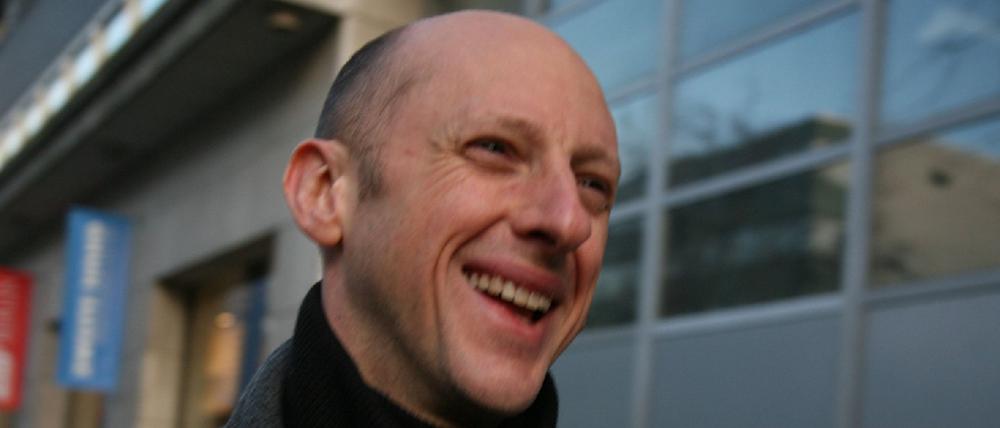
© Thilo Rückeis
Espiner's Berlin: Mandatory Bockwurst
Some german politicians think, we should all speak German. Do they only mean turkish people only or english-speakers too, asks Mark Espiner. And does anyone realise how hard that is?
We should all speak German. Of course most of you do. In fact all of you do, if you’re reading the German version, wonderfully translated from the English I wrote it in. And if you are then you’d be forgiven for thinking that I speak it too. But I don’t. I’m trying, you understand, but do you realise how hard it is? You have three words for “the” for goodness sake. And despite the Goethe Institut intensive course I went to almost a year ago (itself full of its own Sturm und Drang stirred up by a Babel-like classroom of Czech, Chilean, Colombian and Korean students all trying to make themselves understood) taught by a wonderfully eccentric ex-DDR emigre to Damascus now back in Berlin, I’m still struggling.
But we should all speak German, shouldn’t we? A few politicians definitely think so. I read this week (in English of course) that Christian Lindner, chairman of governing coalition partners the Free Democrats (FDP), thought all schoolkids should talk German even in the playground. I guess his comments are aimed at the Turkish community. I can’t imagine that he or anyone else would complain if kids were talking English in their lunchbreaks. In fact there are entire schools that encourage that bilinguality in Berlin. Now even Angela Merkel is joining the language debate.
I thought I was lucky that I spoke English. Because so many of you understand it, I could always make myself understood here. But now it’s a bit frustrating. You see, even when I try to speak German people reply in English - which is nice, but it doesn’t help me learn. So in fact speaking English is something of a barrier to getting to grips with your language. If I were Turkish and trying to speak German, I don’t think the helpful shopkeeper would politely reply to me in my mother tongue with a “Bir güzel gün var”. There’s some kind of language hierarchy going on, here. English OK, Turkish not quite so OK.
Surely that’s the wrong way round? Given the growing Turkish section of society, it would make much more sense to readily accept Turkish instead of English. There might even be a point in considering the possibility of a Turko-Teutonic bilingual nation.
I wondered if that was a greater possibility than I had previously thought a few weeks ago, after my conversation in a Wedding playground with a Turkish mum. My 2-year-old daughter was busy asserting her feminist rights by pushing a Turkish boy down the slide for trying to have it all to himself. So I struck up conversation (in bad German, because I can’t speak Turkish nor she English) to try to make peace. We talked a bit more and with a little interpretation help I understood her position on language and learning. “Mothertongue first”, she said with certainty. I kind of agreed as I noticed my daughter calling the slide a “kleiner rutsche” and feared for moment that she might permanently slip into a language I might never properly understand. But then she told me she had been born in Germany. So, a German by birth but resolutely holding on to Turkish for her and her children. I can understand it though. With my child at a German kindergarten speaking German more and more I want her to have something of my Englishness and that comes with language. Of course I’m happy to adopt and adapt to your Berlin ways - maybe not with all the attitude - but I don’t want to let go of my mother tongue.
Mr Lindner wouldn’t like that - especially in the playground. Just wait for him to insist on Bockwurst being the mandatory lunchtime snack. Mrs Merkel isn’t quite so monocultural, though. “"We should not be a country,” she said, “which gives the impression to the outside world that those who don't speak German immediately or who were not raised speaking German are not welcome here." That makes sense. After all she seemed quite happy for Germany to win Eurovision in English.
The Conservatives in England are trying a similar tactic: using language as a political exclusion tool to limit immigration. Under proposed new rules non-EU immigrants won’t be allowed in to the UK unless they can speak competent English, have a good reason to be there and can make a decent cup of tea. OK, I made that last bit up, but it’s not that far-fetched.
Back to Berlin and the Turkish mum. I wondered how it would work in school for her kids: is this something of a self-imposed language barrier being created? Or is it the beginning of a bilingual Germany?
With all that spinning around my head I thought: crikey, I’m going to have to learn Turkish too. After I’ve mastered German, of course. Let’s say somewhere around 2035?
Sorry that I haven’t written here for a few weeks. I’ve been dashing around a bit. In fact, I was in Scotland for a while. But I do have a few bits of news. After my coffee explorations in the hauptstadt I’ve discovered another fantastic caffeine cafe. CK on Marienburger Strasse. Cory who runs the place makes fine a cup and has created a lovely ambience to enjoy a flat white. And thanks too to the many of you who wrote to me with your Berlin blitz experiences after my last column - if there are any more of you out there please get in touch. I’m looking forward to talking to you - perhaps even in German.
You can email Mark on mark@espiner.com with any Berlin tips you think he should explore or follow him on twitter @deutschmarkuk
- showPaywall:
- false
- isSubscriber:
- false
- isPaid:
- showPaywallPiano:
- false